Cabinet 18
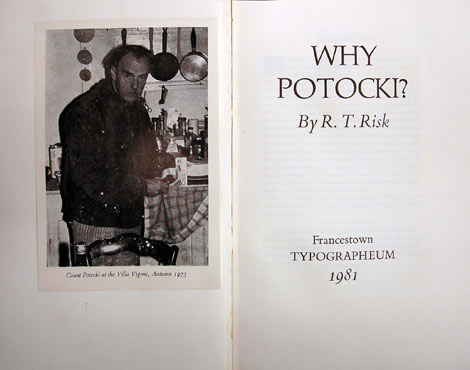 |
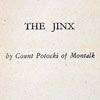
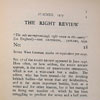
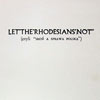
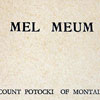
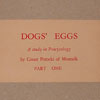
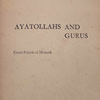 |
In his ‘Pamphlet Literature’ (1943), George Orwell claimed ‘There have been a few good pamphlets in fairly recent years. D. H. Lawrence’s Pornography and Obscenity was one, Potocki de Montalk’s Snobbery with Violence was another.’ Here is the Remuera-born Count Geoffrey Potocki de Montalk (1903-1996) – self-proclaimed Wlasislaw V, King of Poland and Hungary, Grand Duke of Lithuania, the Ukraine and Silesia, Hospodar of Moldavia, etc., who, using a printing press given to him by Richard Aldington, produced a vast number of Right Wing and anti-Semitic pamphlets under the Mélissa Press imprint. Surrounding Terry Risk’s short memoir are Potocki’s own outpourings, including Checklist (right), Ayatollahs and Gurus, The Jinx, and part one of Dogs’ Eggs (left), his slanderous attack on the Powys brothers.
R. T. Risk, Why Potocki? Francestown, New Hampshire: Typographeum, 1981; Count Potocki de Montalk, Check List. Draguignan, France: The Mélissa Press, 1974; ____, The Jinx. Draguignan, France: The Mélissa Press, 1972; ____, Let the ‘Rhodesians’ Not. Draguignan, France: The Mélissa Press, 1977; ____, Mel Meum. Draguignan, France: The Mélissa Press, 1960; ____, Ayatollahs and Gurus. Draguignan, France: The Mélissa Press, 1979; ____, Dogs’ Eggs. A Study in Powysology. Part One. Draguignan, France: The Mélissa Press, 1968. Private Collection.
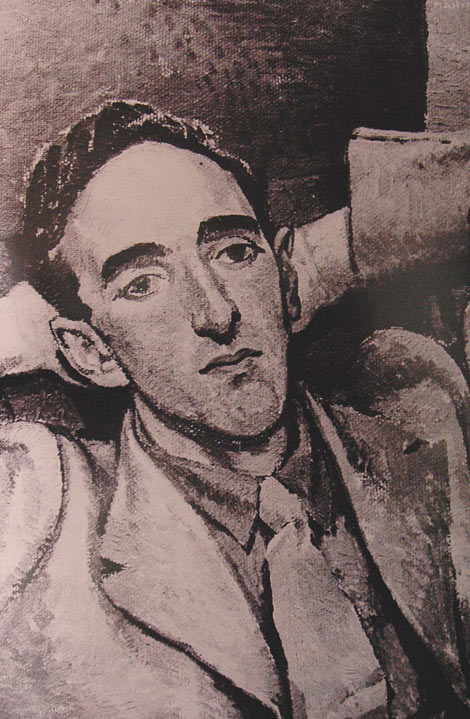 |

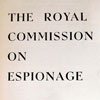
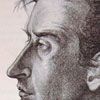
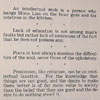
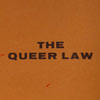
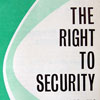
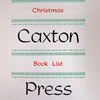
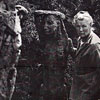
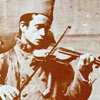 |
When Charles Brasch’s library of some 7,500 books and periodicals came to the University of Otago Library in 1973, there was also a large pamphlet collection included. Now designated the ‘Brasch Pamphlet Collection’, and only partly catalogued, the 22 boxes contain some 800 items, ranging from a 1930 Salzburg Festival Guidebook to a Poetry Books Society brochure (1963). Strictly speaking, many are not pamphlets; more leaflets, brochures, and broadsheets. Nevertheless, like Hocken, Chapman, McNab and a host of other collectors, Brasch had the foresight and vision to salvage these ephemeral items. Many, like the art gallery programmes, are scarce. Here a relaxed Brasch (aged 32) looks on at a small selection of his ‘pamphlets’.
Charles Brasch. Photograph of portrait by Fred S. Manner, c. 1941. MS 996-12/632. Brasch Papers, Hocken Library; Brian Fitzpatrick, The Royal Commission on Espionage. Melbourne: National Press for C. B. Christesen, 1955. Brasch Pamphlets G2.4; Festival at the Globe Theatre. Dunedin: John McIndoe, 1968. Brasch Pamphlets A3.22; David Holbrook, Get Your Hair Cut. Southampton: Newman Neame Take Home Books Ltd, 1962. Brasch Pamphlets G1.16; Brian Bell, A Group of Aphorisms and Condensed Sentences. Wellington: John Rhodes, [1952]. Brasch Pamphlets G1.13; C. J. F. Parkin, The Queer Law. Wellington: NZ Homosexual Law Reform Society, 1968. Brasch Pamphlets G2.13; Yosef Nevo, The Right to Security. Tel-Aviv, Israel: Labour Zionist Movement, [1968]. Brasch Pamphlets G2. 10; The Caxton Press, Christmas Book List. Christchurch: The Caxton Press, [1953]. Brasch Pamphlets I.17; New Vision Gallery, Exhibition of Sculpture by Alison Duff. Auckland: New Vision Gallery, 1970. Brasch Pamphlets C3.8; Théatre de la Tempête, L’Histoire du Soldat. Lausanne, 1928. Brasch Pamphlets A1.44. Special Collections.
